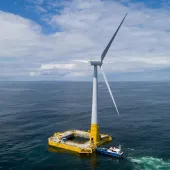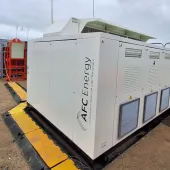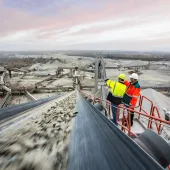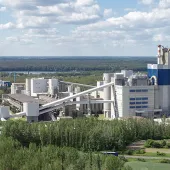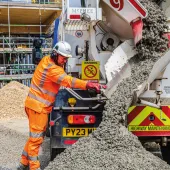Cement industry insights in new white paper from ABB
Electrification, renewables, and CCUS highlighted as key elements of industry’s decarbonization strategy
ABB have launched ‘Cementing a sustainable future’, a new white paper which details the challenges the global cement industry must tackle to decarbonize operations in line with global emissions reduction targets and the vital role technology will play in the success of this endeavour.
Cement plays a critical role as a fundamental material in modern construction. However, the current manufacturing process is energy intensive and reliant on fossil fuels. Contributing to approximately 7% of global carbon emissions, if no action is taken, society’s need for concrete is predicted to generate 3.8 billion tonnes of CO2 by 2050. The cement industry must, therefore, strike a balance between maintaining productivity and reducing emissions.
Combining insights from a range of key industry players, including customers, technology partners, industry media and associations, along with ABB’s domain expertise, this new publication explores cement’s sustainable future. The white paper also details the benefits of advanced electrification used in tandem with technologies adopted through industry collaborations, such as technology and engineering specialist Coolbrook’s RotoDynamic Heater.
The white paper includes discussions around how sustainable cement could be defined, as well as practical advice as to what steps producers can take now in their decarbonization journey. Electrification is identified as a major component in the decarbonization of the cement industry, with the ability to replace fossil fuel burners with electrified, or zero-carbon, solutions. These are predicted to help significantly reduce emissions in line with industry ambitions.
With more than half of the cement industry’s carbon emissions generated during the calcination process, which requires chemical reaction and large amounts of energy to reach an intense heat, current short-term solutions will not be enough to solve the problem. ABB’s white paper delivers insights on electrification pathways designed to transform the process used to heat materials to these high temperatures.
The company’s collaboration with SaltX highlights the viability of electrified solutions in the decarbonization journey, replacing fossil fuels with renewable electricity and utilizing carbon capture and storage. In a similar way, work with Captimise aims to develop screening, feasibility, and front-end engineering and design (FEED) studies for their specific plant to ultimately support cement producers in identifying suitable and cost-efficient carbon capture technologies.
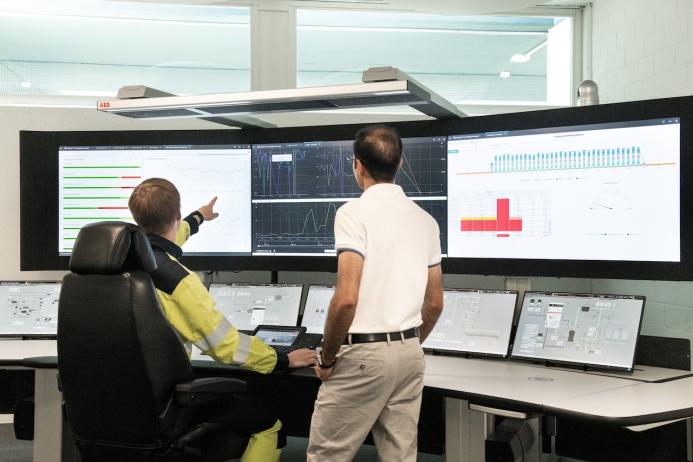
‘No single player in the value chain has all the answers to cement production decarbonization, which is why sharing cross-industry insight, like that included in this latest white paper, is so critical to achieving a sustainable future,’ said Bodil Recke, global manager for the cement business unit at ABB Process Industries.
‘We have worked closely with a wide range of industry partners to showcase solutions on maximizing sustainability, performance, and energy cost savings through a cycle of monitoring, forecasting, and optimizing energy consumption and supply. We are excited to bring this to the market and demonstrate that cement’s carbon-free future is possible.’
The white paper also reaffirms ABB’s ambition to enable customers to avoid 600 megatonnes of CO2 equivalent emissions through products and solutions sold from 2022 to 2030. In the cement industry, ABB’s Real Progress initiative embodies a holistic approach, targeting the entire value chain to lower material use, cut reliance on fossil fuels, minimize waste, enable circularity, and extend the life of assets.
The full white paper can be accessed online by clicking here.





